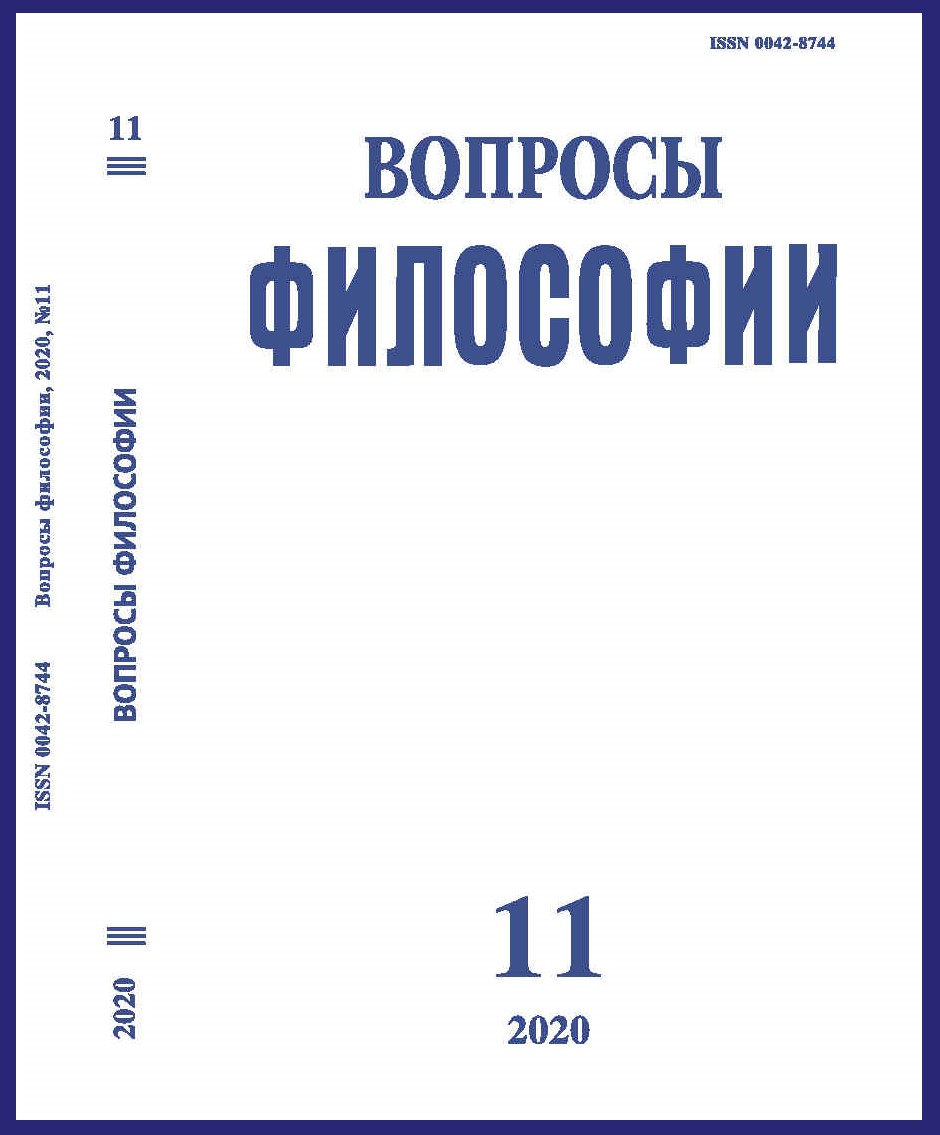The Problem of Perceptionin Modern Analytical Philosophy of Mind
DOI:
https://doi.org/10.21146/0042-8744-2020-11-200-210Keywords:
philosophy of mind, philosophy of perception, the problem of perception, intentionality, direct realism, representationalism, sense-data, disjunctivismAbstract
This article deals with “the problem of perception”, in which realistic intuitions about the nature of perceptual experience encounter skeptical conclusions of arguments based on cases of perceptual illusions and hallucinations. This problem has its roots in the philosophy of modern time, but its modern interpretation has a number of features that are characteristic of the current analytical philosophy of mind. For example, the author examines this issue through the prism of explaining the phenomenal characteristics of conscious experience. The author explicates this issue through the antinomy of J. Valberg called «the puzzle of experience». He examines in detail the arguments against illusion and hallucination as the core of the skeptical part of the antinomy. These arguments are known in the history of analytical philosophy for the fact that, on their basis, philosophers proposed the sense-data theory as the main theory of perception. This theory was flawed both metaphysically and epistemologically. The first drawback is associated with the very status of sensory data as mental objects, and the second is revealed against the background of the problem of cognition of the external world and the “veil of perception”. The author identifies the key assumptions underlying these arguments and demonstrates that they are not enough to establish the truth of the sense-data theory. Further, in the article analyzes the advantages and disadvantages of the main alternative conceptions of perception, offered as a response to these arguments – sense-data theory, representationalism and disjunctivism. In conclusion, the author notes promise of a disjunctivistic approach to the argument against hallucination, and also makes assumption that the main criterion for establishing a “winning conception” is compatibility with a wider project on the naturalization of consciousness, which was started in analytical philosophy many decades ago.

